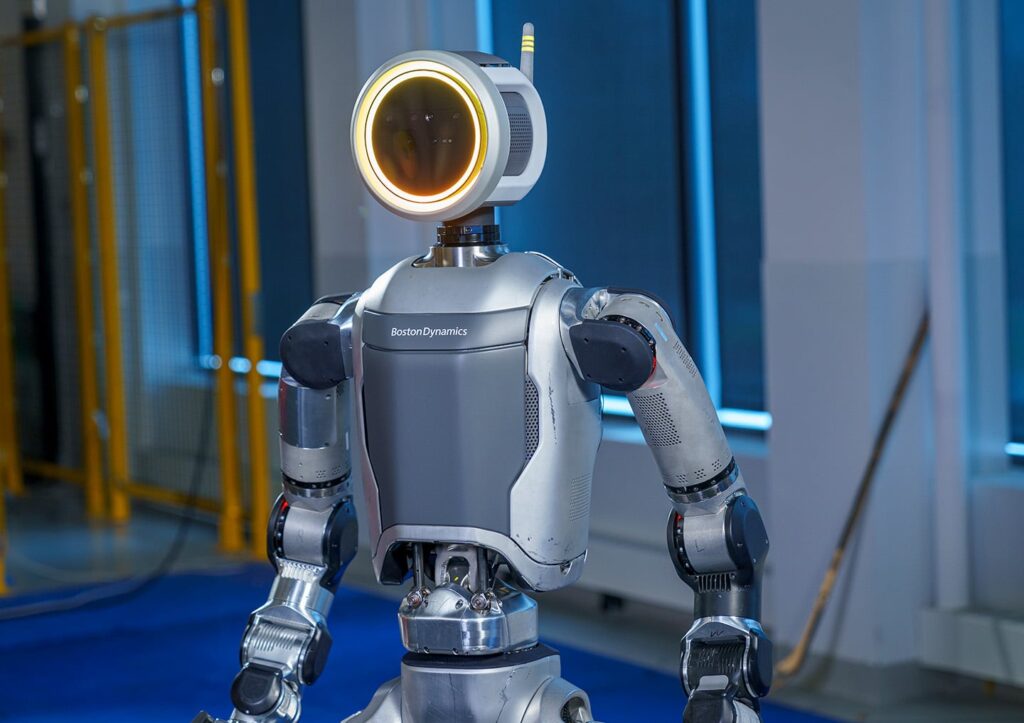Boston Dynamics introduced an all-electric version of its Atlas humanoid robot, marking a significant advancement in robotics. This new model, designed to be stronger, more agile, and more capable than its predecessors, demonstrates a substantial shift from hydraulic to electric joint motors, enhancing its efficiency and performance.
The Evolution of Atlas
Historically, Atlas robots utilized hydraulic actuators for movement, known for their power but also their bulk and susceptibility to leakage. The latest version eschews this old method for compact, lightweight electric motors, significantly improving its agility and the precision of its movements. This change reduces the robot’s operational complexities and maintenance needs, aligning with more sustainable engineering practices.

Capabilities and Design Innovations
The new electric Atlas is engineered to perform tasks that surpass the typical range of human motion, allowing for more versatile applications in industrial environments. Its design includes interchangeable grippers tailored to specific tasks, enhancing its utility on production lines and in complex manufacturing processes. One of the first beneficiaries of this new technology will be Hyundai, which plans to incorporate Atlas into its automotive manufacturing operations.
Boston Dynamics has yet to release full specifications for the new robot, but early demonstrations highlight its enhanced agility and strength. The robot’s ability to adapt its movement for optimal efficiency in various tasks offers a glimpse into the future of robotic automation.
Commercial Prospects and Industry Implications
While the new Atlas is set for initial deployment in industrial settings, its broader commercial application is eagerly anticipated. The shift to an electric platform is expected to broaden its usability across more sectors that require precise and reliable automation solutions.
The unveiling of the electric Atlas continues Boston Dynamics’ tradition of innovative robotics and sets a new standard for the industry. As companies seek to enhance efficiency and reduce human involvement in dangerous or repetitive tasks, robots like Atlas are poised to become integral to industrial operations.
Looking Ahead
As the electric Atlas moves into pilot testing and further development, its impact on the robotics and manufacturing industries will be closely watched. With its enhanced capabilities and adaptability, the Atlas robot represents a significant step forward in the evolution of robotic technology, promising to revolutionize how businesses think about and implement automation solutions.
Boston Dynamics’ progress with Atlas underscores the growing importance of robotics in modern industry, highlighting a future where human-like robots not only replicate but exceed human capabilities in various tasks, driving efficiency and innovation in ways previously unimagined.
Source: Boston Dynamics
Like this article? Keep up to date with AI news, apps, tools and get tips and tricks on how to improve with AI. Sign up to our Free AI Newsletter
Also, come check out our free AI training portal and community of business owners, entrepreneurs, executives and creators. Level up your business with AI ! New courses added weekly.
You can also follow us on X